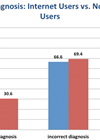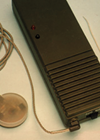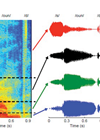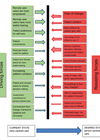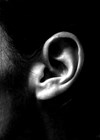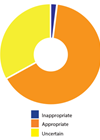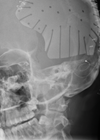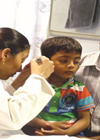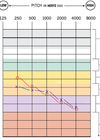ENT features archive for September 2017
Are ENT patients who research their symptoms online better informed?
All our patients look up their symptoms online before they visit us, don’t they? And patients who do so are better informed than those who don’t, right? Well, that’s not actually the case… The ‘information era’ More information is now...
Cochlear implants: recipient stories
The most powerful evidence for the remarkable achievements made with cochlear implants over 40 years comes from the life-changing, personal stories of those who have benefited from the technology. James Rylance I first noticed a problem with hearing when I...
Multi-channel cochlear implants: past, present and future
Forty years since the first multi-channel devices were implanted, who better than Ingeborg Hochmair, who has been a key figure throughout their evolution, to offer her thoughts on the past, present and future of multi-channel cochlear implants? Read on for...
Improving cochlear-implant performance in the short- and medium-term
Can bespoke cochlear implant programming strategies reduce the variability seen in patient performance with an implant? Bob Carlyon reviews the current situation and gives us a glimpse of the future. Although many cochlear implant (CI) patients understand speech well in...
Cochlear implant care: putting patients in charge
Should patients take charge of their own cochlear implant care? Helen Cullington presents a compelling case that will provoke discussion in implant centres. Around 1400 people receive a cochlear implant in the UK each year. Patients require lifetime annual follow-up...
The role of objective measures and imaging to optimise cochlear implant outcomes
Should we be using new or novel objective measures and imaging to assist with our cochlear implant patients? Debi Vickers and Shak Saeed describe current clinical techniques and present advances that have the potential to optimise outcomes. Introduction It is...
Worldwide picture of candidacy for cochlear implantation
Who should get a cochlear implant? Candidacy is one of the most important and widely discussed topics in the field of cochlear implantation. Here, Chris Raine and Debi Vickers outline cochlear implant candidacy in the UK, and compare this with...
Achieving consensus on candidacy for cochlear implantation
The British Cochlear Implant Group’s candidacy working group recently ran a national exercise, working towards a consensus on candidacy for cochlear implantation in the UK. Padraig Kitterick and Debi Vickers were instrumental in this exercise, and in the article below,...
Cochlear implantation for single-sided deafness and asymmetric hearing loss
Continuing our sub-theme of cochlear implantation candidacy, Richard Irving and Raghu Kumar review the principles and benefits of cochlear implantation in individuals who have an asymmetric hearing loss. It is well known that cochlear implantation improves auditory capacity, and in...
Cochlear implantation in the developing world: perspectives from the Indian subcontinent
Cochlear implants are an expensive technology, yet profound hearing loss is far from a developed-world phenomenon. On the contrary, incidences of both congenital and acquired hearing losses are high in the developing world. This article explains how an initiative in...
Cochlear implants for children
The field of cochlear implants in children has expanded remarkably over 40 years. Elizabeth Tyszkiewicz reflects on success and current challenges and calls for a national review of outcomes for young adults who received their implants in childhood. Aleena is...
A surgeon’s perspective on the challenges facing cochlear implantation in children
Cochlear implantation in children offers a different set of challenges and goals to adult practice. In this article, Iain Bruce, Professor of Paediatric Otolaryngology in Manchester, UK, explains some of the current clinical and research challenges in paediatric cochlear implantation,...


